86 results in Exploration of Digital Health Technologies
Latest
Sort by :
- Latest
- Most Viewed
- Most Downloaded
- Most Cited
Open Access
Systematic Review
Digital innovation in sepsis-related healthcare: a scoping review of mobile application literature
Khalia Ackermann ... Ling Li
Published: February 13, 2026 Explor Digit Health Technol. 2026;4:101186
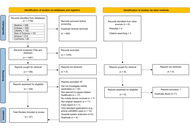
Open Access
Perspective
Harmonizing multicenter quantitative imaging data: sources of variability, statistical solutions, and practical workflows in CT and MRI
Nurmakhan Zholshybek, Lazzat Bastarbekova
Published: February 10, 2026 Explor Digit Health Technol. 2026;4:101185
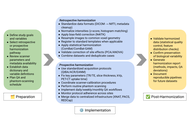
Open Access
Original Article
Open-source light calibration system for hyperbilirubinemia phototherapy treatments
Joshua T.M. Givans ... Joshua M. Pearce
Published: February 08, 2026 Explor Digit Health Technol. 2026;4:101184
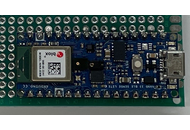
Open Access
Original Article
#YouthMentalHealth: hashtag analysis of global trends, stakeholder engagement, and impact on X platform (formerly known as Twitter)
Mehr Muhammad Adeel Riaz ... Faisal A. Nawaz
Published: January 20, 2026 Explor Digit Health Technol. 2026;4:101183
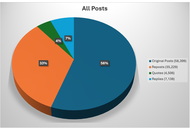
Open Access
Systematic Review
Thermography and technology: transforming health insurance with smart diagnostics and fraud prevention
Enzo Montresol Faversani
Published: January 19, 2026 Explor Digit Health Technol. 2026;4:101182
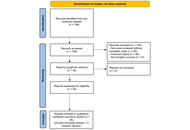
Open Access
Perspective
Towards the future of personalized medicine: digital twin technology
Keren Mazuz, Seema Biswas
Published: January 14, 2026 Explor Digit Health Technol. 2026;4:101181
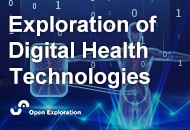
Open Access
Original Article
“Not the happiest words came to my mind”—Subjective experiences of AI-assisted self-representation among individuals with high risk of depression
Klaus Kellerwessel ... Adrienn Ujhelyi
Published: January 12, 2026 Explor Digit Health Technol. 2026;4:101180
This article belongs to the special issue Digital Health Innovations in the Battle Against Psychological Problems: Progress, Hurdles, and Prospects

Open Access
Original Article
Knowledge, perception, and willingness of digital psychiatry among psychiatrists in Pakistan: a multicenter cross-sectional study
Mehr Muhammad Adeel Riaz ... Faisal A. Nawaz
Published: January 07, 2026 Explor Digit Health Technol. 2026;4:101179
This article belongs to the special issue Telepsychiatry in Low-and Middle-income Countries: an Update
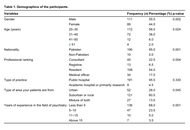
Open Access
Perspective
A call for responsible innovation in pediatric health care
Venkata Sushma Chamarthi ... Rahul Kashyap
Published: January 06, 2026 Explor Digit Health Technol. 2026;4:101178
This article belongs to the special issue Expert Opinions on Digital Health Innovations
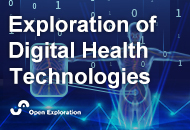
Open Access
Perspective
Reimagining vaccine advocacy: a digital health and policy perspective to overcome HPV hesitancy
Precious Iretiayo Adeniyi
Published: January 03, 2026 Explor Digit Health Technol. 2026;4:101177
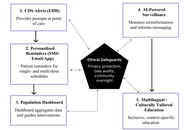
Open Access
Original Article
Osteochondritis dissecans: analyzing educational content quality and reliability on YouTube
Taylor M. Low ... Dennis Chakkalakal
Published: January 03, 2026 Explor Digit Health Technol. 2026;4:101176
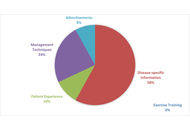
Open Access
Original Article
Multimodal feature extraction and fusion for determining RGP lens specification base-curve through Pentacam images
Leyla Ebrahimi ... Sara Hashemi
Published: December 08, 2025 Explor Digit Health Technol. 2025;3:101175
This article belongs to the special issue Deep Learning Methods and Applications for Biomedical Imaging
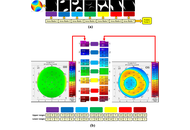
Open Access
Review
Artificial intelligence in psychiatry: transforming diagnosis, personalized care, and future directions
Olalekan John Okesanya ... Don Eliseo Lucero-Prisno
Published: November 18, 2025 Explor Digit Health Technol. 2025;3:101174
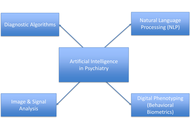
Open Access
Original Article
Digital eye strain and associated factors among final-year undergraduate students in public universities in southern Ethiopia
Melaku Haile Likka ... Tewelgn Kebede
Published: November 10, 2025 Explor Digit Health Technol. 2025;3:101173

Open Access
Original Article
Exploring the potential of AI-assisted self-representations in identity-focused art therapy
Lilien Tóth ... Adrienn Ujhelyi
Published: November 10, 2025 Explor Digit Health Technol. 2025;3:101172
This article belongs to the special issue Digital Health Innovations in the Battle Against Psychological Problems: Progress, Hurdles, and Prospects

Open Access
Protocol
Study protocol for a non-inferiority trial of electronic versus face-to-face brief intervention following alcohol screening in Zacatecas-Guadalupe, Mexico and Alexandra Township, South Africa
Deborah A. Fisher ... Ted R. Miller
Published: November 09, 2025 Explor Digit Health Technol. 2025;3:101171
This article belongs to the special issue Telepsychiatry in Low-and Middle-income Countries: an Update
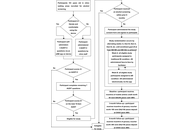
Open Access
Original Article
Can gamified behavioral change mental health mobile apps reduce students’ anxiety and improve well-being? An efficacy study
Iolie Nicolaidou, Despo Nicolaidou
Published: November 05, 2025 Explor Digit Health Technol. 2025;3:101170
This article belongs to the special issue Digital Health Innovations in the Battle Against Psychological Problems: Progress, Hurdles, and Prospects
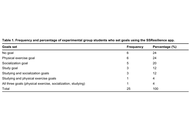
Open Access
Original Article
A pilot study on the feasibility and acceptability of a mobile e-health application about obsessive-compulsive disorder (OCD)
Lucía Bellver-Peñalver ... Gemma García-Soriano
Published: October 29, 2025 Explor Digit Health Technol. 2025;3:101169
This article belongs to the special issue Digital Health Innovations in the Battle Against Psychological Problems: Progress, Hurdles, and Prospects

Open Access
Original Article
Quantifying and mapping population response to the COVID-19 pandemic in different countries for the period 2020–2022
Aleksander K Cherkashin, Natalia E Krasnoshtanova
Published: October 29, 2025 Explor Digit Health Technol. 2025;3:101168
This article belongs to the special issue Data-informed Decision Making in Healthcare
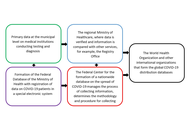
Open Access
Mini Review
The role of artificial intelligence (AI) in foodborne disease prevention and management—a mini literature review
Sabine Maritschnik ... Ziad El-Khatib
Published: October 21, 2025 Explor Digit Health Technol. 2025;3:101167
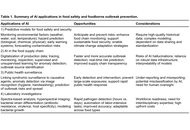
Journal Information
 Previous
Previous